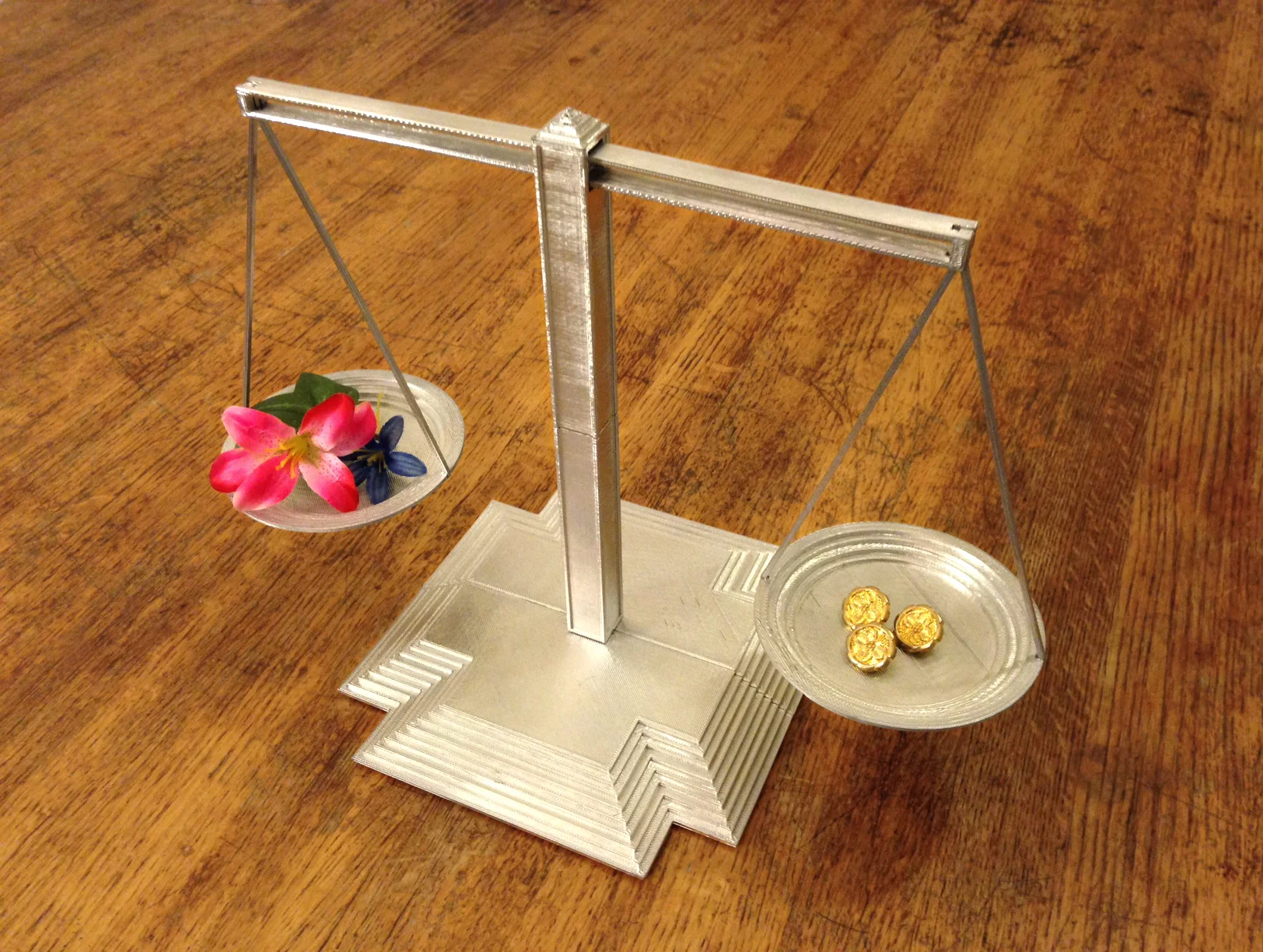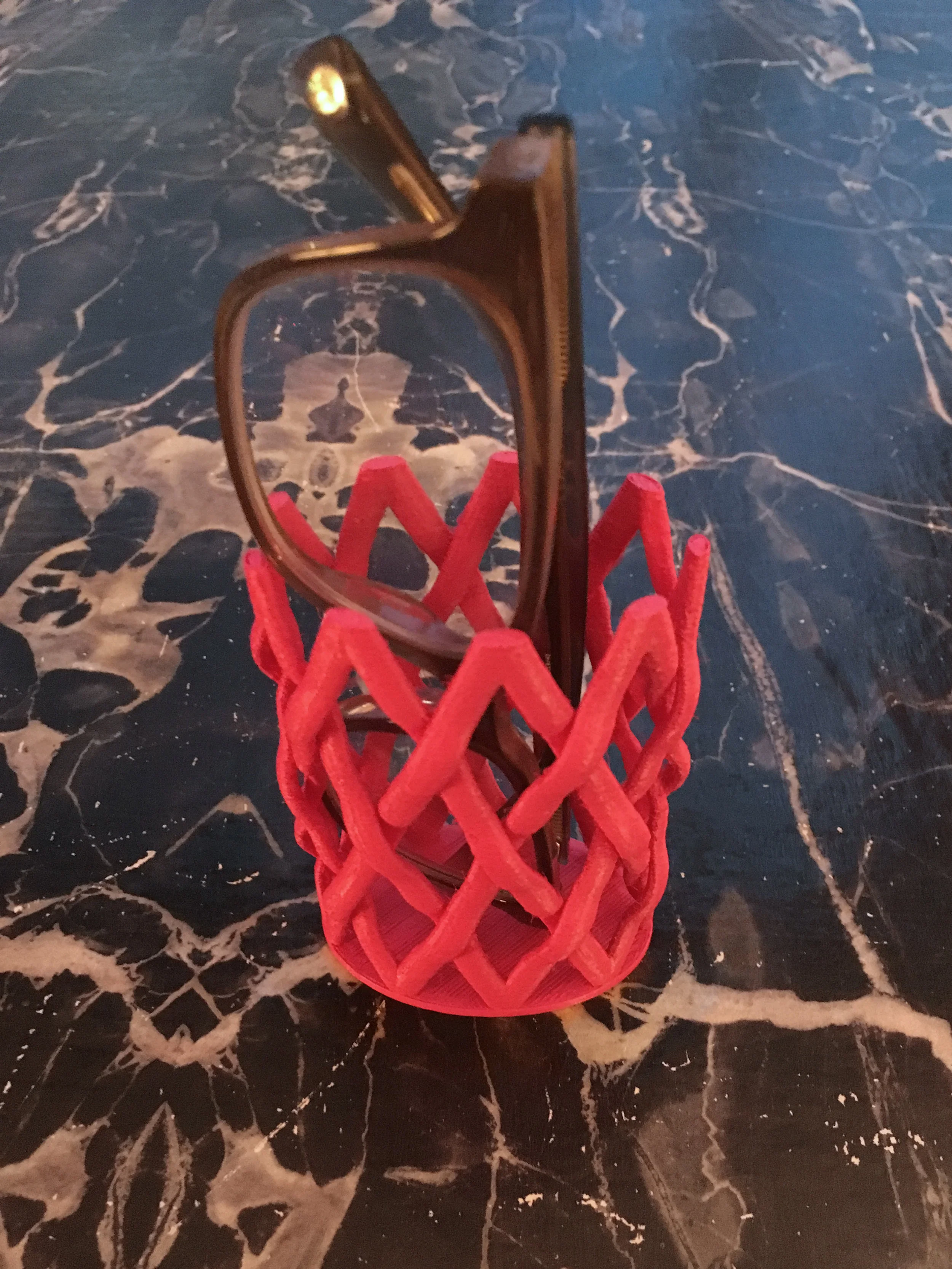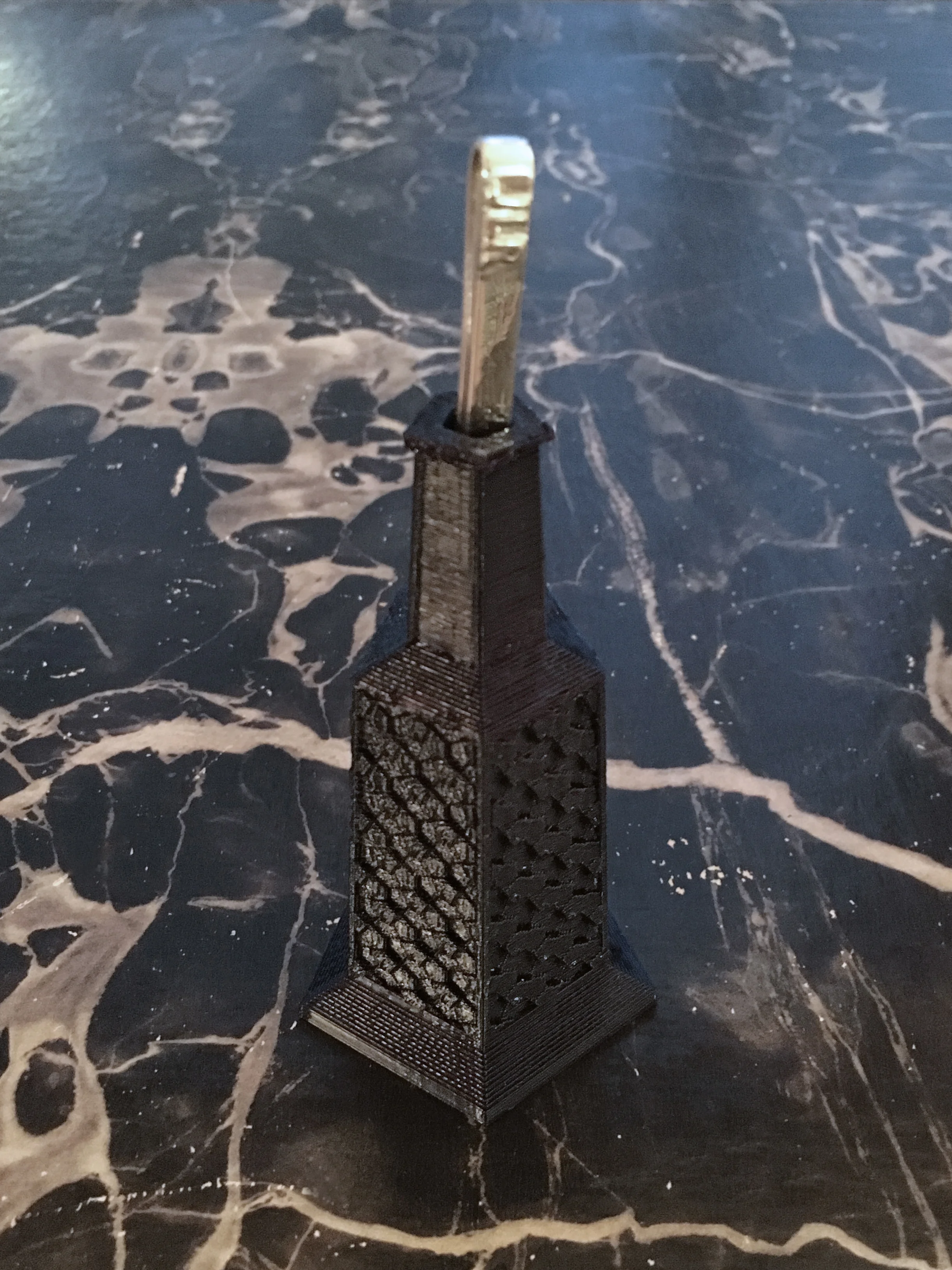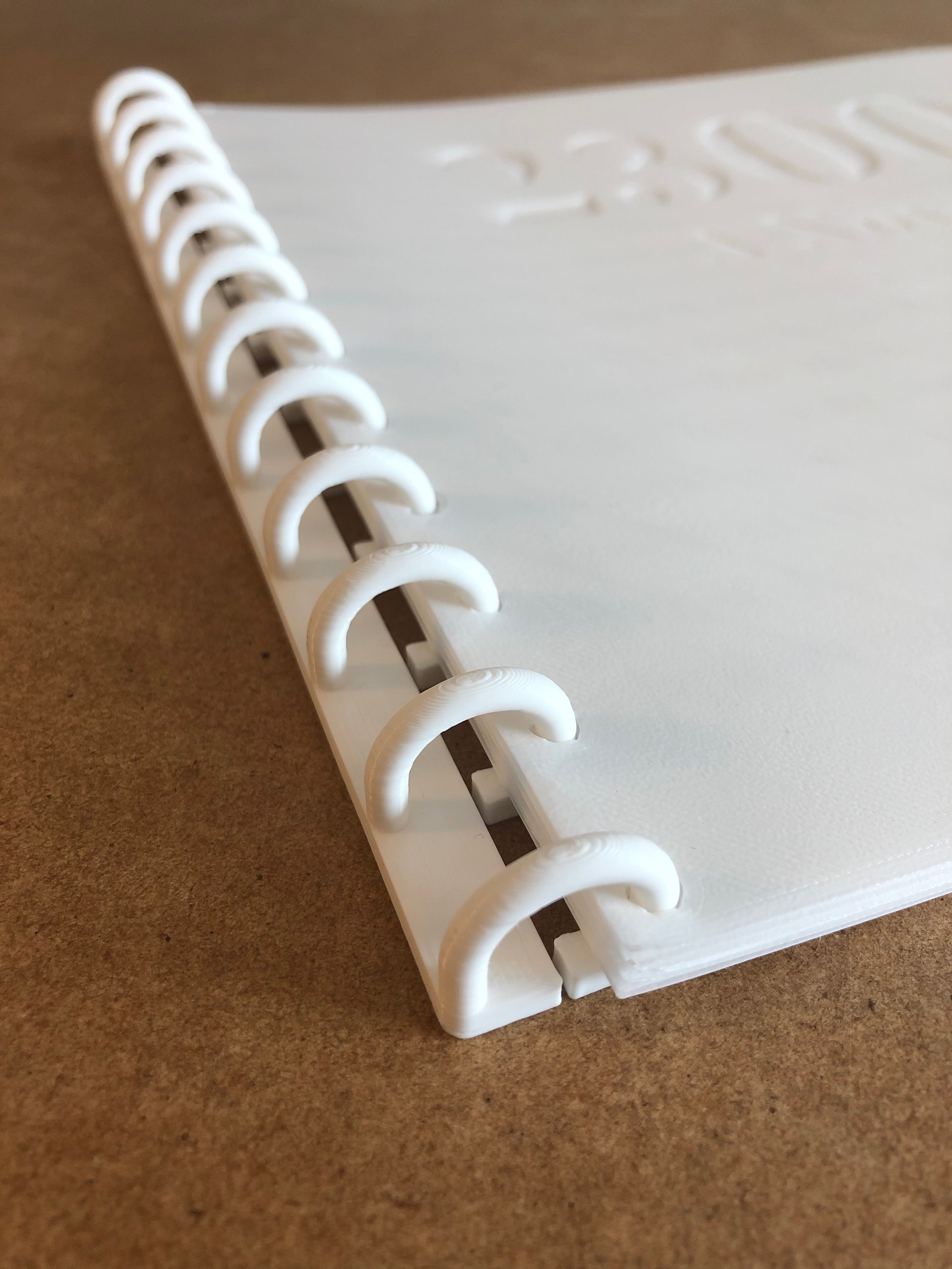
















The fully functioning scale of justice was completed in 2014 for use in a music video. It consists of nine interlocking parts, spraypainted in silver. I tried to riff off of the stepping found on Aztec pyramids.

The world's first 100% 3D printed-in-place hourglass. It features an adjustable aperture inside the bottleneck, allowing for control of bead flow duration. This was my first 3D printed compliant mechanism. Completed 2021.
Full project write-up here.

The world's first 100% 3D printed-in-place compass. The design offers major improvements over a standard compass: it traces a full circle without slipping, shows the angle and radius as it rotates, can be retrieved from a backpack without jabbing, and is friendly to kid-size hands.
Full project write-up here.

This joystick was commissioned by a friend for a final project in 2017. In the interest of maximizing his grade, I bedazzled the upper section. The texture on the ergonomic handle is one of the first I designed parametrically using Rhino Grasshopper. It comes complete with custom cavities for microcontroller and I/O pins.

This charging station features docks for iPhone, Apple Watch, and AirPods. A fourth dock can charge any device. Each works on its own, or you can mix and match docks to form a complete circle!
While this station is not endorsed by Apple, it's most certainly inspired by Apple products. The dock designs borrow from many of the lines found in the original iMac desktop computer.
Full project write-up here.

This piece was designed in collaboration with design technologist Ammani Nair, who coded and prototyped the Arduino innards in 2017. It’s a kind of gentle alarm clock - the neopixel strip inside slowly comes to life at the designated wake up time. Waving your hand over the motion sensor at top toggles light settings. At over a third of a meter high, it was my largest 3D print to date (completed on a 3D printer custom-built by a local engineer).

This piece was designed for my mom who, prior to receiving it, was in the habit of misplacing her glasses. The base should have been thicker and the warp and weft of the weave could have been more cleanly executed, but I was a parametric design neophyte back when this was made in the early ‘10s.

A pentagonal stand for a tie clip for my dad. I applied a subtle Cairo tessellation to the walls nearer the base.

I’ve always been fascinated by the geometric possibilities of the Star of David. (Ironically enough, Islamic geometers have taken full advantage of them to marvelous effect, which can be seen in mosques the world over.) This project, executed in the mid-10s, was rather misbegotten, as no menorah should be made of a material with a low melting point; the piece duly melted into a puddle within an hour of first use.

This necklace tiles a beautiful base unit: a circle composed of a multitude of interlocking L-shapes. The circles overlap a la the Olympic logo. In this case, I tiled the units into a triangle shape and attached to this a fine golden chain. The piece was printed in flexible TPU filament, with the idea that it would conform to the wearer’s chest. I have never seen the recipient wear it, which may speak to the effectiveness of this idea.

This Fitbit tracker bracelet was executed in the early days of the wearables boom. My girlfriend at the time wanted a more stylish variant, and as the computer powering the Fitbit could slide out of the heinous rubber bracelet in which it was sold, I happily obliged. Being that her name began with Y, I created a Y-themed enclosure and had it cast it in 18K gold. The bracelet portion was composed of 3D-printed units through which I threaded a black elastic strap. This project offered a valuable opportunity to refine my 3D printing, stitching, and metalworking skills.


This hair brush was commissioned by Zapota Hair, a Paris-based salon. It consists of two pieces, the upper an abstract texture, and the lower a set of teeth. The height, angle, and thickness of each tooth is unique.

This was the first project to come off of my first 3D printer back in 2013. The lid slides shut, protecting the business cards within. I had nearly forgotten about it until 2022, when I was midway through designing a business card holder for my company, TOMO. In a moment of deja vu, I realized that both pieces shared the same peculiar base shape, which I’m apparently still eager to explore.

The busts featured in these bookends come compliments of Scan the World, the world's premier archive of works of art in three dimensions. The first bookend comes from a scan of the bust of a peasant, housed in a private collection in Italy. The second is Queen Nefertiti, wife of Pharaoh Akhenaten of the18th Dynasty of Ancient Egypt, and possibly a Pharaoh in her own right. Her bust is a crown jewel of Berlin's Neues Museum.
Full project description here.